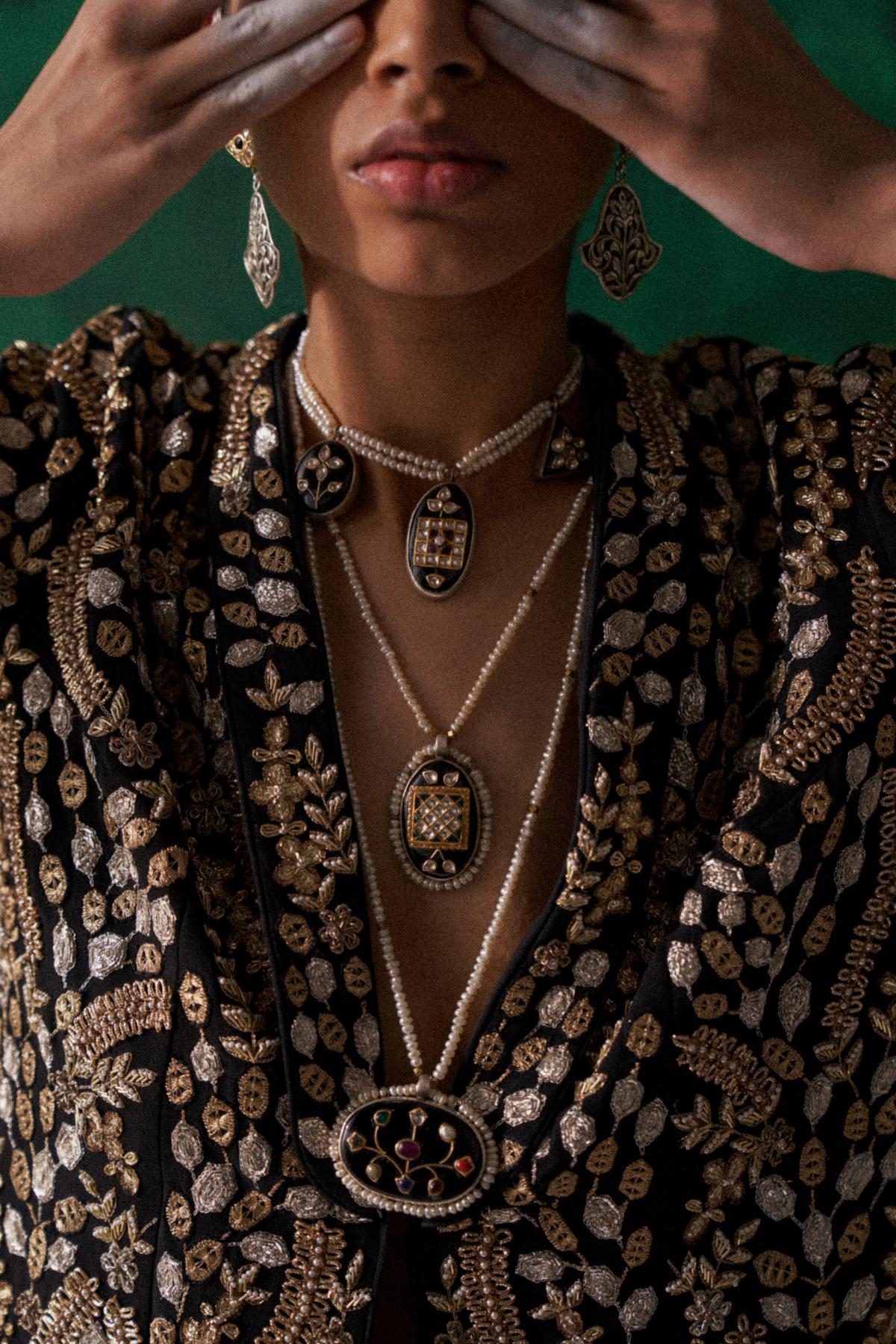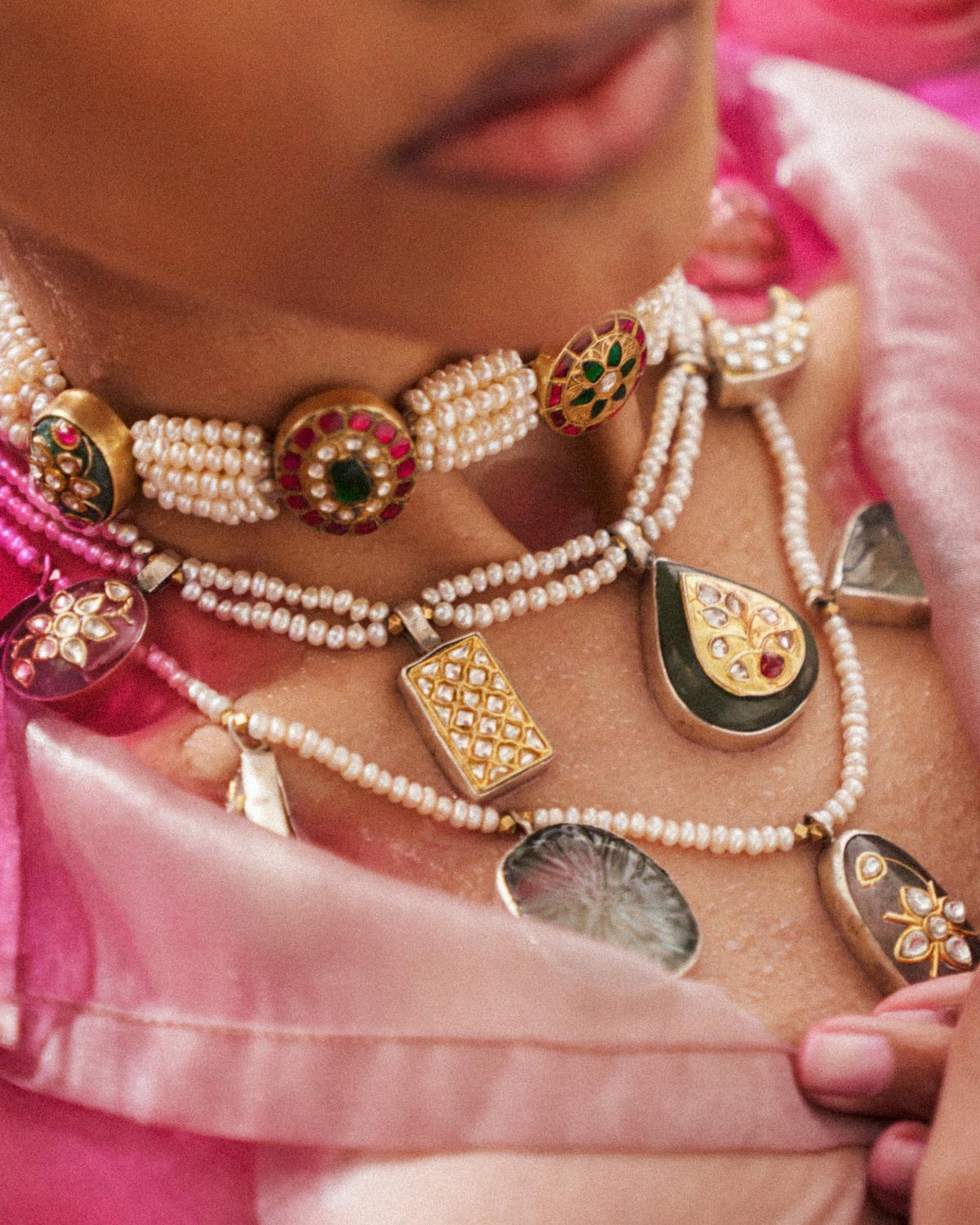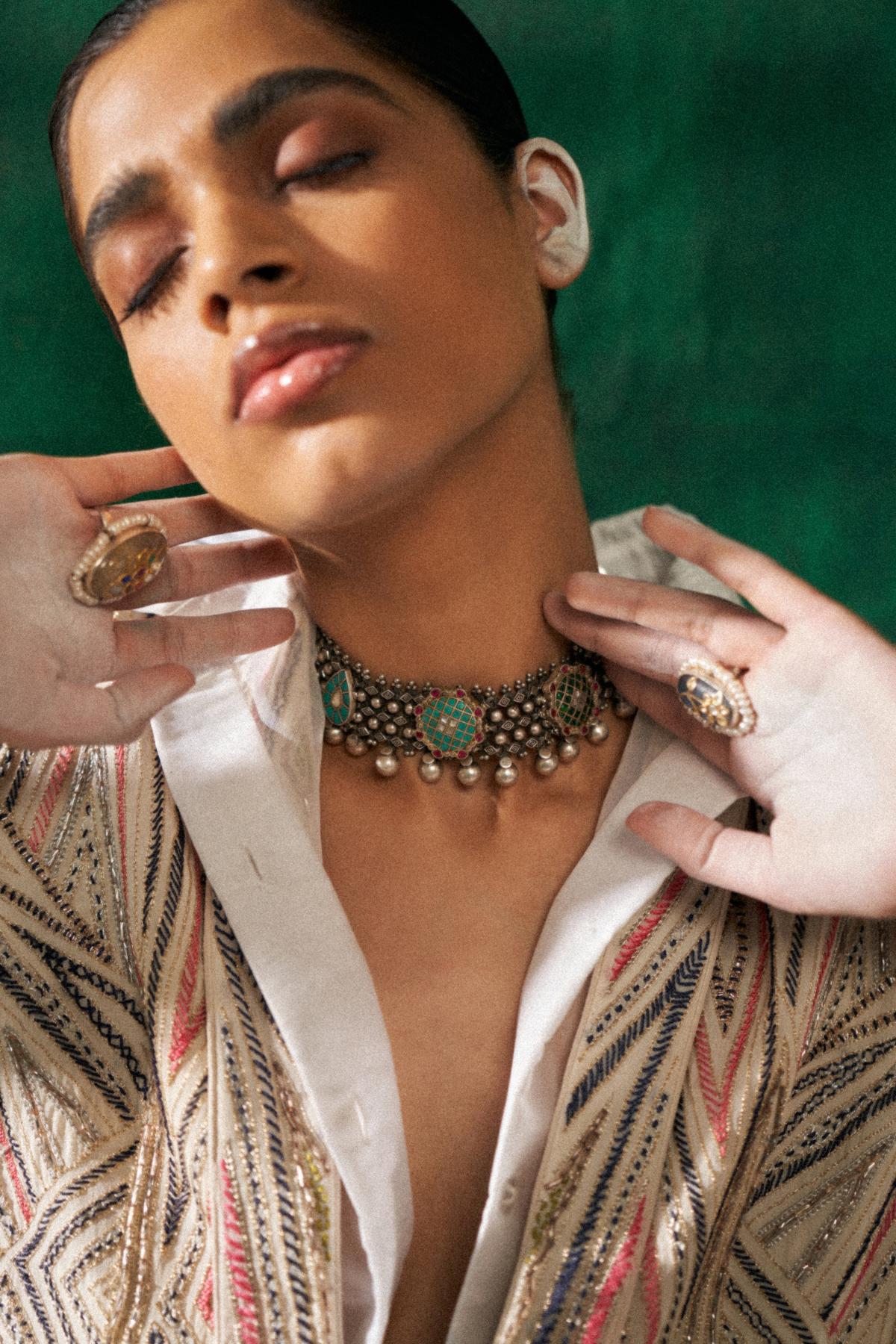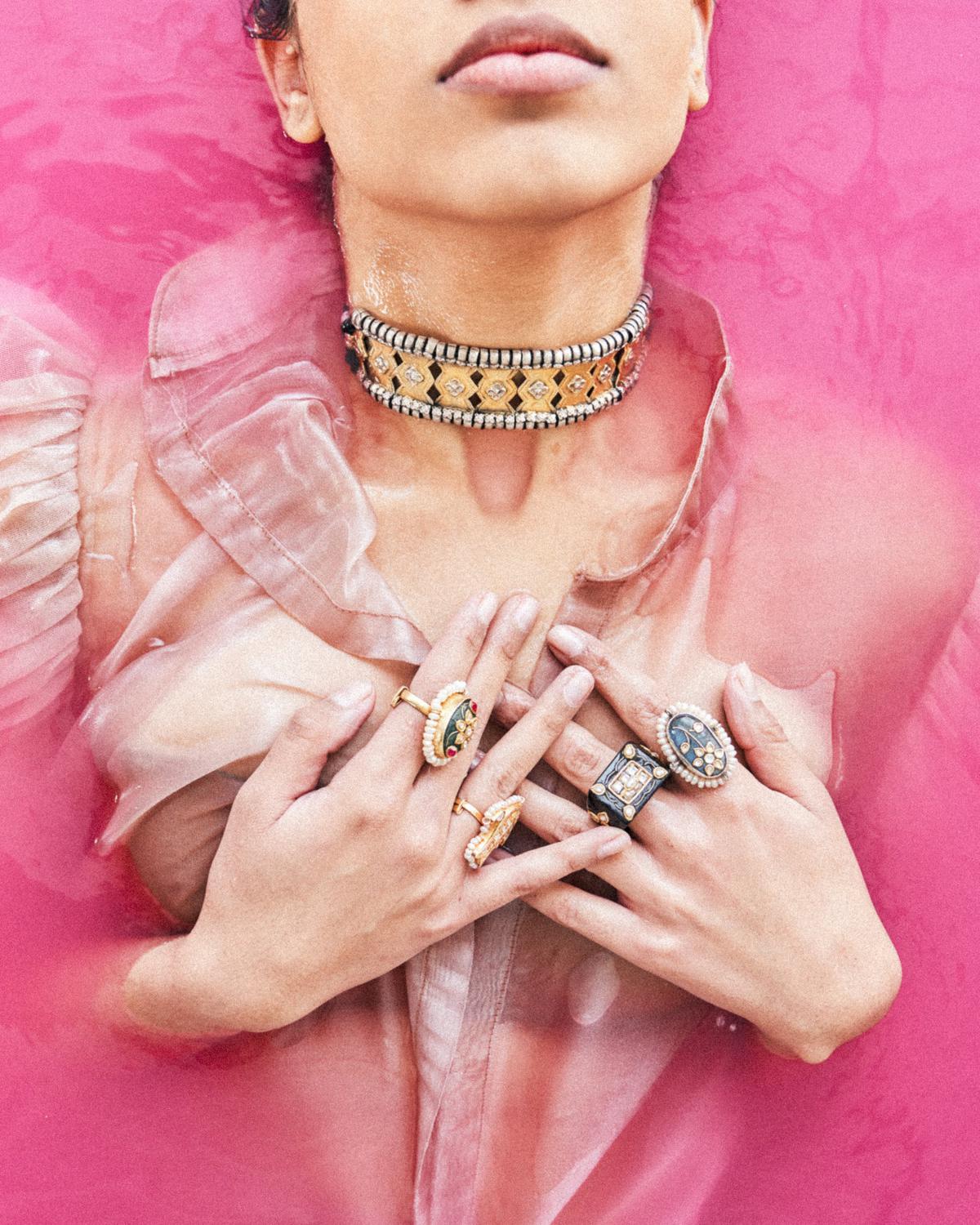The designer’s first jewellery collaboration takes its blueprint from heritage pieces but gives it a contemporary makeover
The designer’s first jewellery collaboration takes its blueprint from heritage pieces but gives it a contemporary makeover
When you’re invited to a Payal Singhal show, it’s always two showcases. One on the ramp, with the models, and the other at the front row with celebrities and fashion editors, many of whom turn up dressed head-to-toe in Payal’s signature prints as a show of support. Some of these are gifted to influencers and editors alike, of course, but many aren’t — it is a testament to the brand Payal has built. Easy, fun, accessibly priced, and meant to be worn without strict styling rules. Her clothes have quickly, and without much advertising, become the uniform of a chosen community.
Why did a jewellery collaboration take so long then? Especially as she has previously collaborated with indie beauty brand Ranavat on packaging, on shoes with Fizzy Goblet and Paio, on fusion wear with The Label Life as well as Indya, and on a line of wallpapers with Marshalls.
“Sangeeta Boochra’s [Jaipur-based heritage jewellery] brand reached out to us in 2020 over email. By the time we actually met and started designing our contract had already expired,” says the Mumbai-based designer. Like many other pandemic plans, the line took two years, from planning to execution. It finally launched in stores and online earlier this month.
As precious as a pearl

‘Zaiwar’ is a 50-piece capsule collection. It is in parts inspired by her own archives, reimagined in Payal’s muted-with-a-hint-of-tropicana colour aesthetics. “The most valuable pieces of jewellery in my possession are heirloom kundan and pearl necklaces and earrings passed on to me by both my grandmothers. They have somehow become the blueprint for my taste in jewellery,” shares Payal.
The brand describes Zaiwar as the coming together of rustic bohemia and luxurious elements of Indian heritage. The capsule consists of rings, earrings and stackable necklaces, among others. It is offered as an alternative investment to everyday costume jewellery.

While Payal’s regulars may find an instant connect, the line provides a younger outlook to Sangeeta Boochra’s brand and clientele. “During the Mughal era, gold inlay work was specifically done on gemstones like margaz or emeralds. We have tried to achieve the gold quality and finish with silver, handcrafted by the master craftsmen and gold artisans from India,” says Riteek and Abhineet Boochra, Sangeeta’s sons and current custodians of the brand.
A single ring could require the painstaking work of four artisans to complete. While the work is intricate and historically inspired, the final look is young and au currant. Look for the faux tiger’s claw and the famous Awadh fish strewn with micro pearls. The pieces would make a good addition to a work wardrobe, but are an even better option for destination weddings, where carrying expensive family pieces is always a hassle.

“Much like my clothes, I don’t believe in selling people a look. I hope each buyer will make the jewellery their own. Style it their way. That, to me, is true brand loyalty,” says Payal. While she designed and chose the gems for each of the 50 designs, Sangeeta Boochra’s team provided the technical know how and raw materials.
Established in 1897 as a silver shop by Sangeeta’s family, the brand’s archive consists of rare pieces made by artisans from Afghanistan and Sri Lanka, among others. Payal had access to these archives for inspiration and experimentation. “We chanced upon a sketch of an original kundan work necklace from Afghanistan and it was a fascinating deep dive into history and how it connects us all.”
How to grow a brand

Collaborations are successful when each party brings their strength to the table instead of trying to reinvent the wheel themselves. Payal truly understands this and, hence, has been able to make her portfolio of partnerships so diverse. “In creative industries there is this misconception that designers have to know and do everything in-house. Designing, marketing and selling are completely different jobs, and a brand does well when it collaborates on key points. Which is why the current market sweep of designers by big corporations is so exciting,” Payal concludes.
























